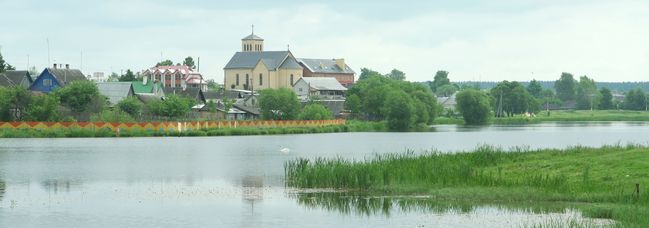
Dokshitsy Regional Executive Committee
Address: 31 Leninskaya Street,
Dokshytsy 211722
Phone:
8 (02157) 3-25-10 from 8.00 to 17.00
Fax:
8 (02157) 3-25-11
E-mail:
rikdok@vitebsk.by











Address: 31 Leninskaya Street,
Dokshytsy 211722
Phone:
8 (02157) 3-25-10 from 8.00 to 17.00
Fax:
8 (02157) 3-25-11
E-mail:
rikdok@vitebsk.by











Promising avenues for advancing cooperation were presented during the second Belarusian-Latin American forum in Moscow on 20 April, BelTA has learned.
As he addressed representatives of the diplomatic corps of Latin America countries, Belarusian Deputy Minister of Foreign Affairs Evgeny Shestakov said: “Taking into account dynamic changes of the geopolitical situation and the world economy a majority of countries of the world, including Belarus, are forced to adapt to constantly changing conditions in order to promote their economic interests and ensure decent living standards for their citizens.”
In his words, in its development Belarus strives to follow cutting-edge world trends, namely: the reduction of carbon dioxide emissions by means of countrywide electrification, usage of modern technologies for ensuring food security, development of information technologies, and the ensuring of cybersecurity. “We know that these trends are topical for Latin American countries, too, this is why within the framework of today's event we would like to share with you the experience and offers of Belarusian companies and organizations with regard to the development of electric transport, introduction of biotechnologies in agriculture, active promotion of services in the area of information technologies,” the official said.
Evgeny Shestakov stated that interest in matters concerning passenger electric transport in the last few years was prompted by growing efficiency of the technologies in use, falling cost of operation and maintenance of electrobuses as well as the growing concern about the impact of automobile emissions on human health and the environment. Latin American countries are actively developing strategic plans and a legal base for introducing environmentally pristine electric transportation. Although in most of the countries in the region the electrification of public transport is at the stage of pilot projects, individual countries have already made significant progress in incorporating electrobuses into their mass transit systems. About 92% of Latin America's fleet of electrobuses has to be imported. There is a strong dependence on Chinese manufacturers, which share is approximately 75% of the entire park.
Evgeny Shestakov said: “While following common world trends, Belarusian manufacturers of passenger automobile vehicles have already accumulated their own experience of development of technologies and production of electric transport and are ready to offer a broad range of these products with a good value for money to buyers.”
Agriculture is still one of main branches of the economy in a majority of Latin America countries. The Belarusian deputy minister of foreign affairs noted that thanks to active support of the state Belarus had managed to secure significant accomplishments in agriculture. The country fully satisfies the domestic demand and constantly increases export. It has been made possible partially thanks to the introduction of cutting-edge technologies in agriculture. “The National Academy of Sciences of Belarus, a number of scientific organizations and companies are hard at work developing and introducing new biotechnologies. We are interested in directly sharing the best practices with the relevant organizations of Latin American countries for the sake of putting these technologies to use,” the official stated.
Speaking about the development of information technologies, Evgeny Shestakov mentioned Belarus' experience in this sphere. “As a promising avenue for possible cooperation with Latin American countries in the IT sphere one can mention cybersecurity, blockchain, training of IT specialists as well as complex solutions for digital government, smart cities, smart agriculture, digital healthcare and education,” he suggested.
Apart from that, the official mentioned such topical matters as freight transportation and the organization of transactions between Belarus and Latin American countries amid Western sanctions. A representative of a logistic company spoke about accomplishments in establishing new logistics in the current situation. A banking industry specialist informed those present about the currently possible options for financing export shipments of Belarusian products and for enabling payments to and from Belarus.
The second Belarusian-Latin American forum in Moscow gathered over 40 Latin American diplomats, who are accredited in Russia. More than ten countries were represented at the ambassadorial level. Representatives of the Belarusian Industry Ministry, the National Academy of Sciences of Belarus, OAO Development Bank of the Republic of Belarus, and the largest Belarusian companies presented Belarus' export potential for them.